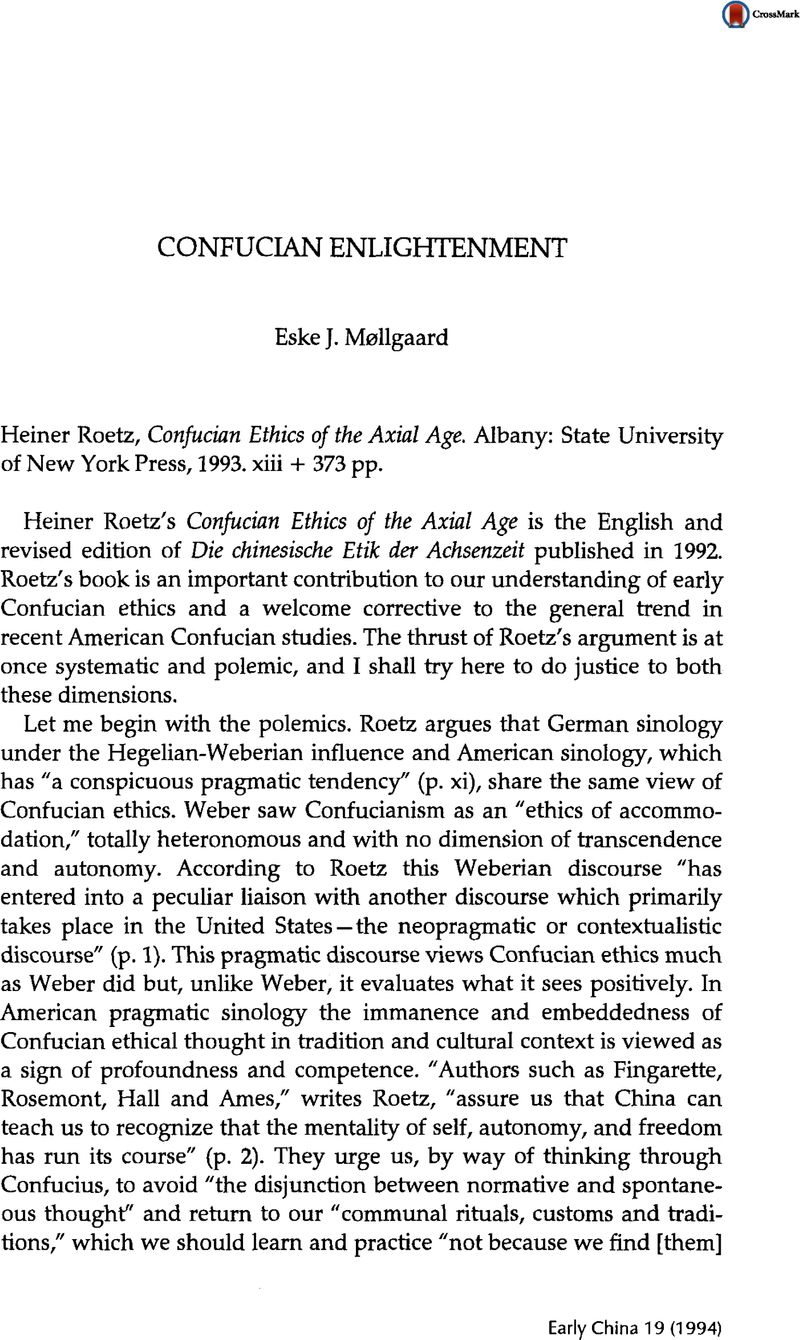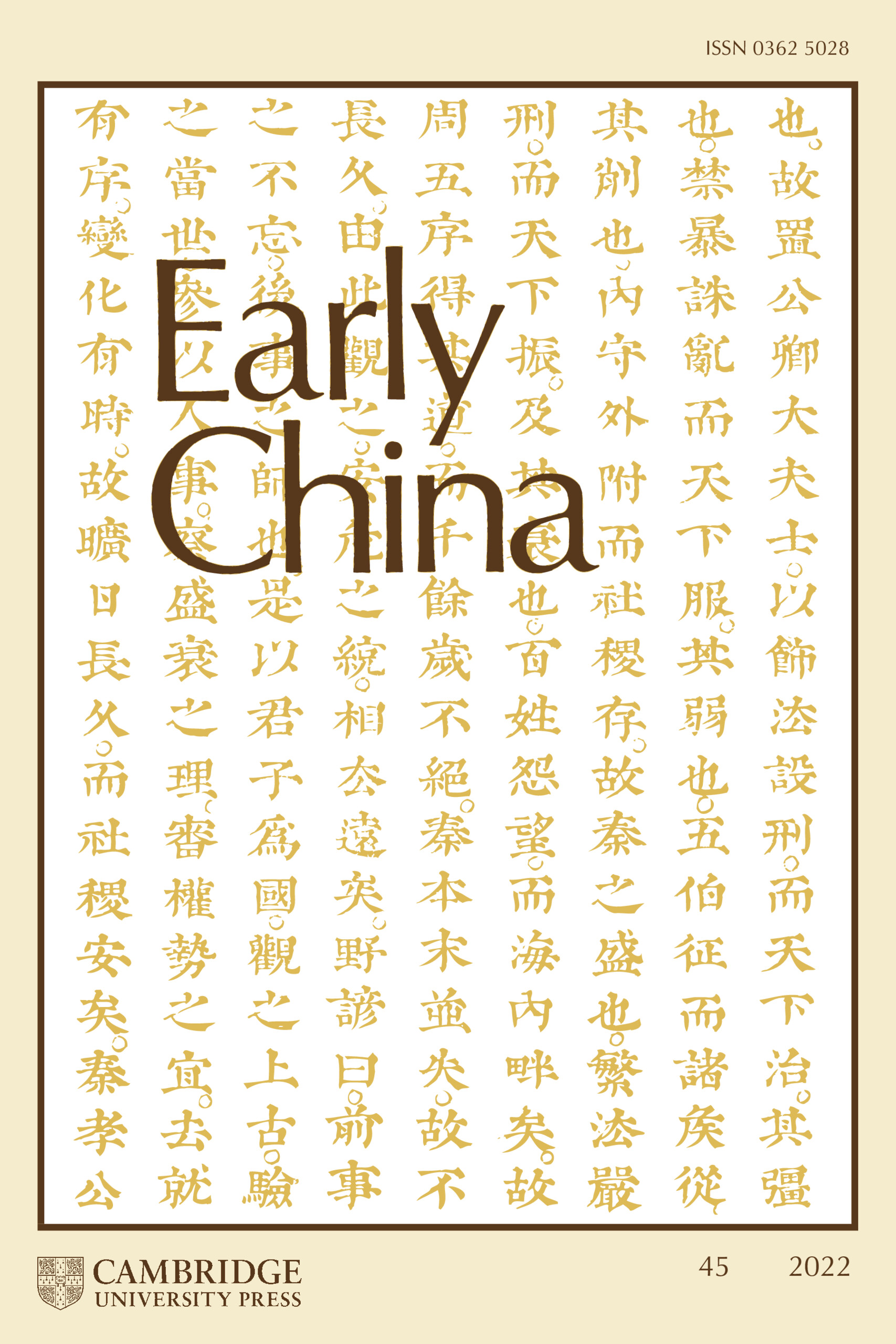Article contents
Confucian Enlightenment
Published online by Cambridge University Press: 26 March 2015
Abstract

- Type
- Reviews
- Information
- Copyright
- Copyright © Society for the Study of Early China 1994
References
1. For the last three quotations Roetz refers to Hall and Ames, Thinking Through Confucius (Albany: State University of New York Press, 1987), 43Google Scholar; Rosemont, Henry, “Kierkegaard and Confucius: On Finding the Way,’ Philosophy East and West 36.3 (1986), 208–209CrossRefGoogle Scholar, and Fingarette, Herbert, “Reason, Spontaneity, and the Li: A Confucian Critique of Graham's Solution to the Problem of Fact and Value,’ in Chinese Texts and Philosophiml Contexts: Essays Dedicated to Angus C. Graham, ed. Rosemont, Heniy (La Salle: Open Court, 1991), 218Google Scholar.
2. For Roetz's more detailed critique of Hansen, see “Validity in Chou Thought: On Chad Hansen and the Pragmatic Turn in Sinology,’ in Epistemological Issues in Classical Chinese Philosophy, eds. Lenk, Hans and Paul, Gregor (Albany: State University of New York Press, 1993), 69–112Google Scholar.
3. Except where noted all translations are by Roetz.
4. Schwartz, Benjamin, The World Of Thought in Ancient China (Cambridge, Massachusetts: The Belknap Press, 1985), 68Google Scholar.
5. It is possible that something like a procedure of application is implied in the passage from the “Zidao” chapter of the Xunzi quoted above. Roetz does not refer to that passage in his discussion of the application of postconventional morality.
6. Fingarette, Herbert, “Reason, Spontaneity, and the Li,” 219Google Scholar.
7. See Yearley, Lee H., Mencius and Aquinas: Theories of Virtue and Conceptions of Courage (Albany: State University of New York Press, 1990), 17 and 20Google Scholar.
8. Williams, Bernard, Ethics and the Limits of Philosophy (Cambridge, Massachusetts: Harvard University Press, 1985), 29Google Scholar.
- 11
- Cited by


